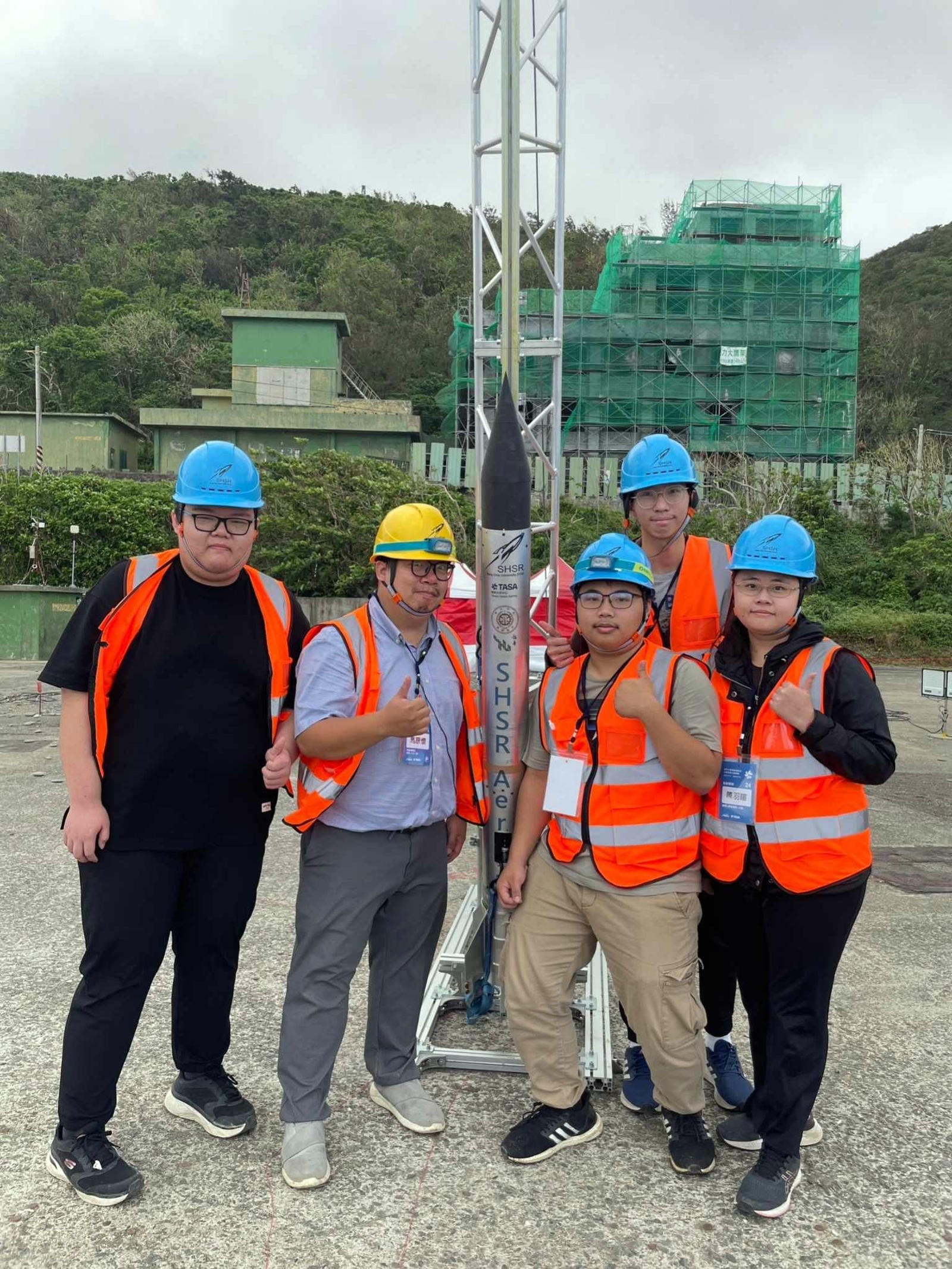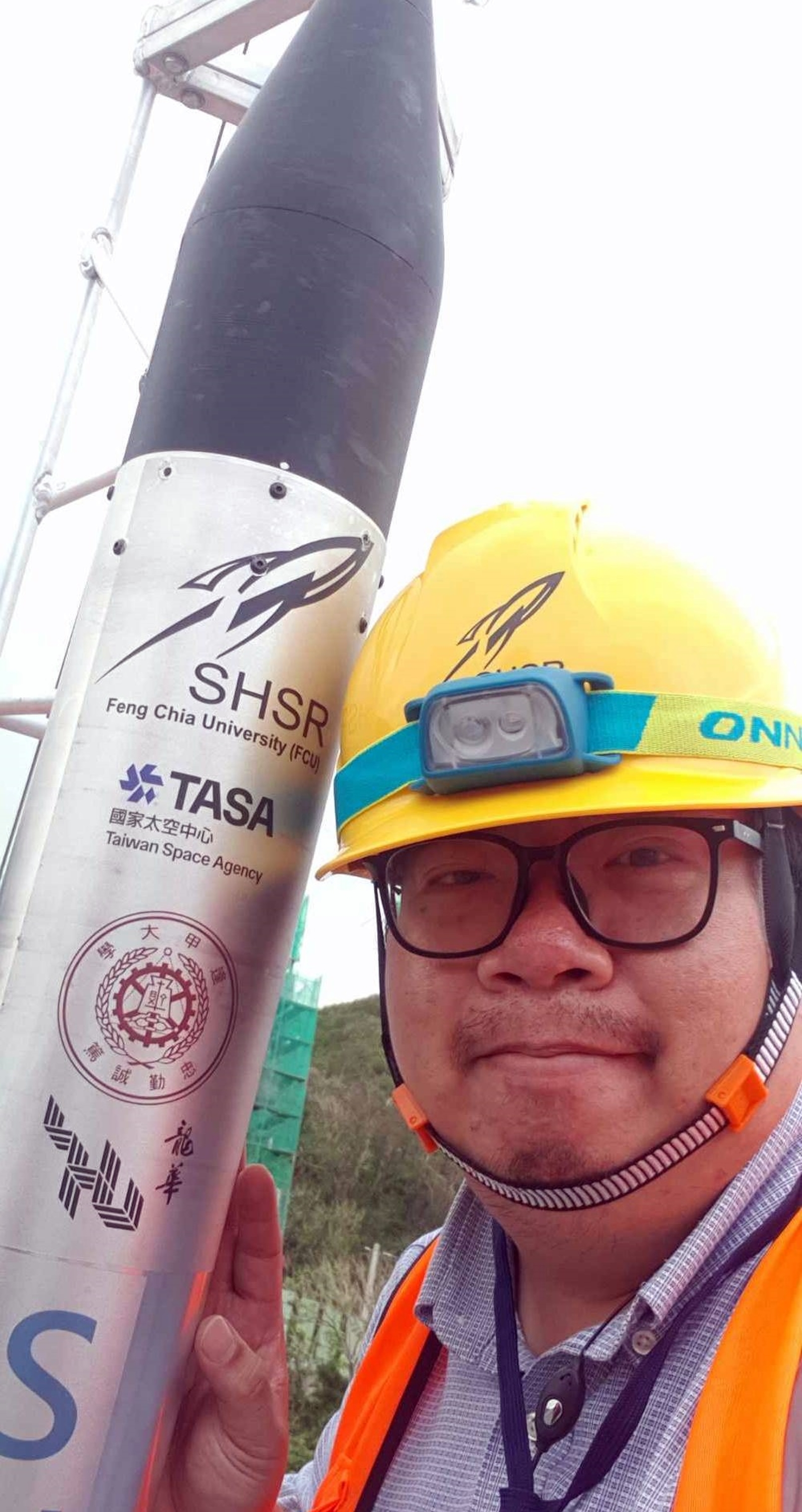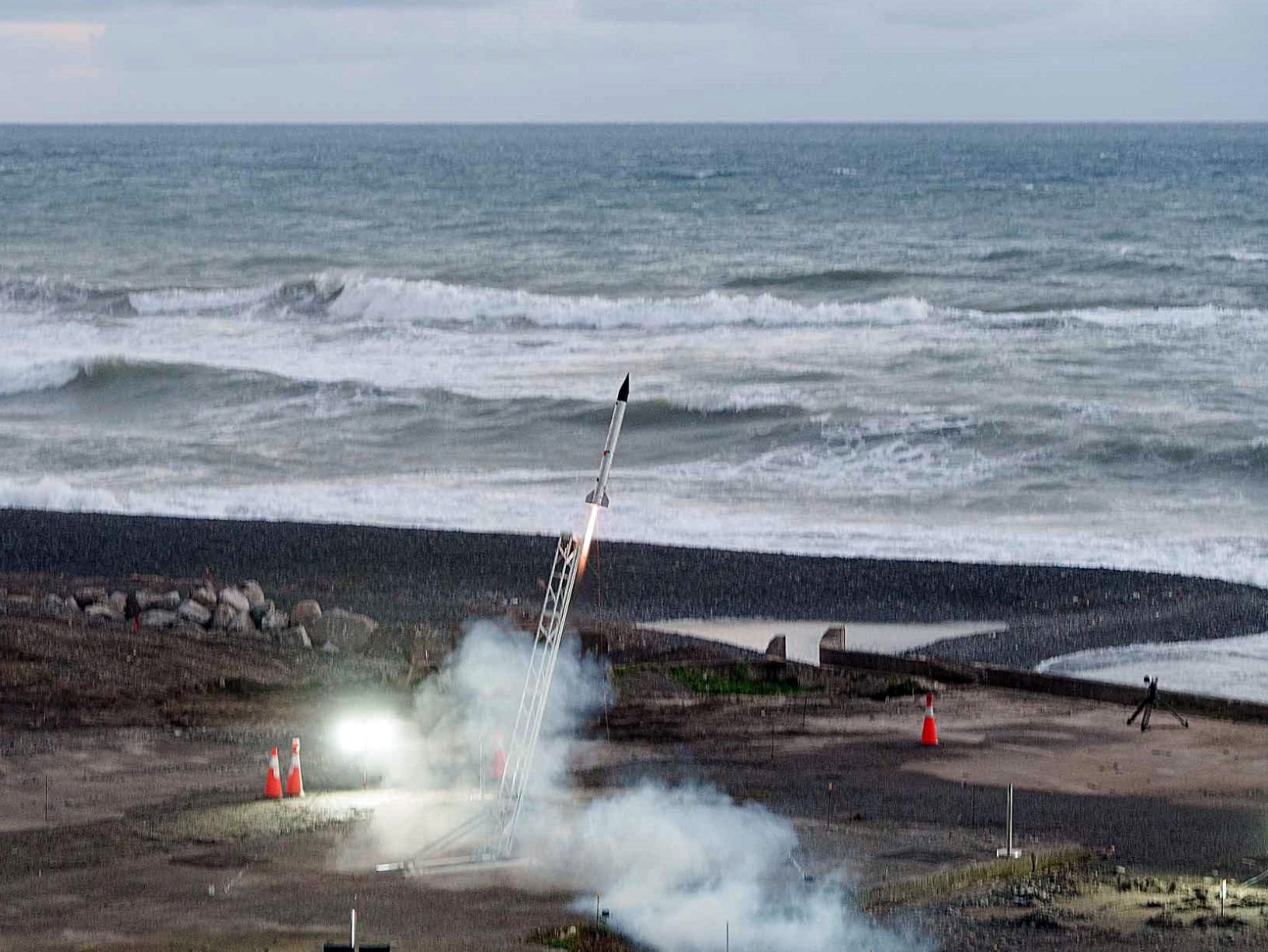Home / News and events
Lunghwa Faculty and Students Realizing Space Dreams for Taking the Lead in Participating in Sounding Rocket Launch
Dec 07 2023
The small-scale monomeric hybrid research rocket SHSR-Aero1, developed by Feng Chia University in collaboration with Dr. Yen-Huai Ma’s team from Lunghwa University of Science and Technology, was successfully launched at the National Science Council’s Short-Term Research Sounding Rocket Launch Site in Syuhai, Pingtung. SHSR-Aero1 launched this time has an average thrust of 350N (Newtons), a burn time of 8 seconds, a total impulse of approximately 1600 Ns (Newton-seconds), a flight time of 14 seconds, and reaches a height of roughly 200 meters. Feng Chia University, the leading institution, is the first school in central Taiwan to enter the field of research rockets. Lunghwa, participating in the joint development, has also become the first private university of science and technology to launch a sounding rocket successfully.
Since February 2022, Feng Chia University and Lunghwa University of Science and Technology have been engaged in the small-scale rocket development research project of the Taiwan Space Agency (TASA). Led by Professor Chun-Liang Yeh of the Department of Aerospace and Systems Engineering at Feng Chia University, the team includes the Aerospace Department, Assistant Professor Yen-Huai Ma from the Department of Electronic Engineering at Lunghwa University, and 22 students. They aim to develop a small-scale hybrid research rocket vehicle with a monomeric propulsion system capable of executing flight missions of scientific experiment measurement. The Lunghwa team, under Dr. Yen-Huai Ma, is responsible for designing the rocket’s flight control system and ground navigation telemetry system, with the participation of four students from the university and technical college departments.
Dr. Yen-Huai Ma believes that the involvement of Lunghwa students in the TASA research project on rocket development provides an excellent learning and observational opportunity. This participation enhances personal technical skills, involves cross-university communication, integrates technical processes, and allows students to observe doctoral students’ technical proficiency and research attitudes from other institutions, contributing to their overall growth. The recent flight was a test launch for the project, focusing on the functionality of each system, with the thrust being only one-third of the full-scale rocket. The full-scale rocket project aims for a thrust of 1250N and is expected to be launched in the second half of 2024.
Initially scheduled for an early morning launch, technical issues led to two consecutive unsuccessful attempts, missing the optimal launch window. The launch had to be postponed to the following morning. At 3:00 AM, the team began preparations at the rocket launch site in Syuhai, Pingtung. By 5:15 AM, the team completed the rocket assembly, filled the hybrid propellant at 5:30 AM, and installed the rocket on the launch pad by 5:45 AM. At 5:50 AM, all personnel evacuated the launch site. The ground navigation telemetry system, led by the Lunghwa team, initiated the launch procedure.
At 5:55 AM, after confirming weather conditions and evaluating the situation, it was decided to initiate the countdown at exactly 6:00 AM. As spare materials had been exhausted in the previous day’s attempts, this was the last opportunity for launch. The entire team anxiously awaited the rocket’s success. At 5:59 AM, Professor Chun-Liang Yeh issued the official launch command. Dr. Yen-Huai Ma confirmed and executed the launch procedure. At exactly 6:00 AM, the personnel at the ground telemetry station initiated the countdown. As the countdown reached 0 seconds, the rocket’s igniter successfully ignited. With a resounding noise, the rocket, adorned with the Lunghwa emblem, soared into the sky, prompting cheers and celebrations for the mission’s ultimate success.
Dr. Yen-Huai Ma believes that the experience gained in this process provides Lunghwa students with valuable practical experience. The students have matured significantly by actively participating in team research and testing amid high-pressure situations alongside senior students and carrying the immense pressure until the successful launch. Especially for the three technical college students, having such an experience at this age will immensely benefit their future growth.
Dr. Hsin-Hsiung Huang, the head of the Department of Electronic Engineering, stated that in recent years, technical universities have faced the impact of declining student numbers. Many parents are concerned about whether schools prioritize enrollment at the expense of quality teaching. Dr. Yen-Huai Ma’s leadership in guiding the students to achieve this feat confirms that the department has rich teaching faculty and practical experience. Students studying in the Department of Electronic Engineering at Lunghwa have the best learning opportunities, ensuring limitless prospects for their future careers.
photo:



Media Contact
Secretariat Office, the Lunghwa University of Science and Technology
Contact: LI,CHIANG-SHENG
Office Phone: 82093211#2012
E-mail: lcs222@mail.lhu.edu.tw
